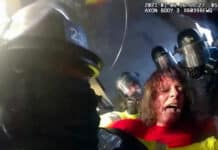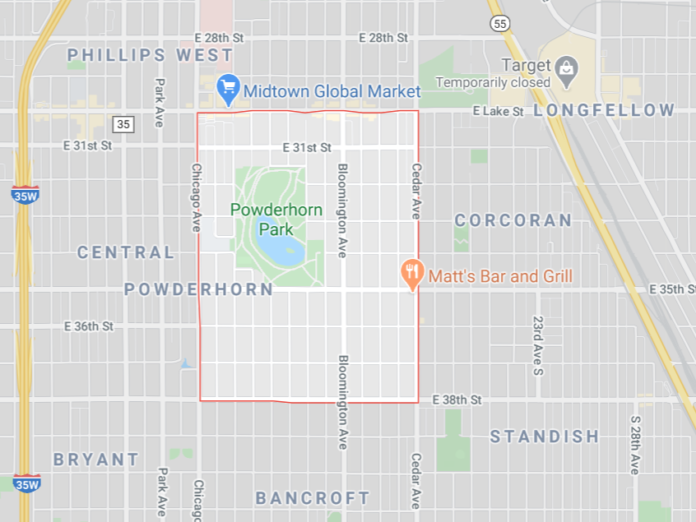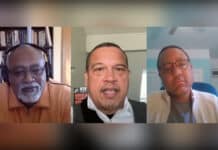The Powderhorn Park neighborhood has banded together to ignore crime in an effort to counteract their “white privilege,” earning them praise from the New York Times.
A group of Powderhorn Park women say they will ignore all property damage to their own homes and will even refrain from calling the police when lives are in danger. Rather, they have resolved to summon activists from the American Indian Movement (AIM) to mediate disputes and respond to crime. AIM is the same group that topped the statue of Christopher Columbus in front of the Minnesota Capitol building recently.
Unfortunately for residents of the Minneapolis community, activists aren’t always responsive to their cries for help.
When Joseph Menkevich found a black man passed out in the elevator of his apartment building in the Powderhorn Park neighborhood, he phoned a “community activist,” but got no response, according to the NYT. Menkevich then went on to bemoan how he had to resort to calling 911 which resulted in the arrival of an ambulance accompanied by white cop.
“It didn’t resolve in a way that I had hoped,” Menkevich said, per the Times.
Other residents find themselves in such dire straits that calling an activist is out of the picture.
When Mitchell Erickson found himself cornered by two black teens in his Minneapolis neighborhood, he called the cops– but later chose to help the criminals because he felt guilty.
Erickson called the police on the two teens who pointed a gun at his chest and demanded his car keys in his Powderhorn Park neighborhood— a decision that he says he regrets. Now, he won’t cooperate with prosecutors, and says he wishes he could have helped the teens even more.
“I regret calling the police. It was my instinct but I wish it hadn’t been. I put those boys in danger of death by calling the cops” he told the New York Times. “I haven’t been forced to think like this before. So I would have lost my car. So what? At least no one would have been killed,” he concluded.
Erickson ultimately did not lose his car, and nobody died that night. In his terror, he gave the criminals his house keys not his car keys, which forced them to steal a different vehicle instead.
Meanwhile, residents of the neighborhood say they feel unsafe, but refuse to admit this without also professing how they purportedly harbor no ill will to the criminals who terrorize their community.
“It’s not personal. It’s just not safe,” Carrie Nightshade told the Times, commenting on how she can no longer let her kids play in the neighborhood park which as been overrun by a homeless encampment.
An aerial view of the homeless encampment in Powderhorn Park.
“I’m not being judgmental,” she adds, even as she explains how her children are in danger.
Another woman, Kinnea Borden, says she can’t walk her dog in the park anymore because of the sexual harassment she receives from vagrants when she does so. Despite this, she refused to condemn the situation when speaking with the NYT. “My emotions change every 30 seconds,” she said.
“I am afraid,” says another woman, Shari Ablers. “I know my neighbors are around, but I’m not feeling grounded in my city at all. Anything could happen.” However, NYT reporter Dickerson says that because calling the cops “would add to the pain that black residents of Minneapolis were feeling,” Ablers has refrained from requesting law enforcement support.
Residents also report increased car traffic in their streets since the homeless camp in Powderhorn park first arrived. It seems that a portion of this traffic is drug dealers. Two people have already overdosed inside the encampment, per the Times.
Even Akhmiri Sekhr-Ra, a black woman who expressed her strong liberal beliefs when speaking to the Times says she’s looking to leave the Powderhorn Park area, presumably for somewhere safer.

















